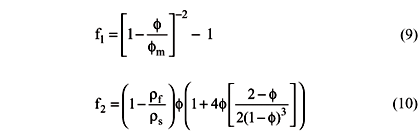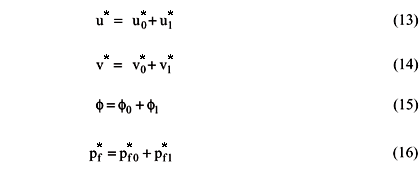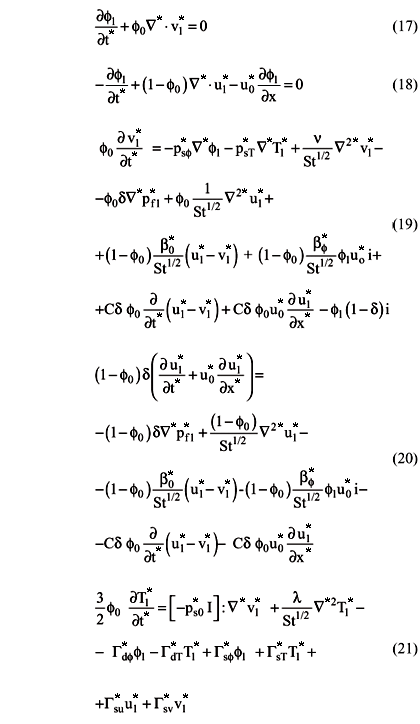This work contains a novel approach for the study of stability in fluidized systems. It includes the influence of solid particle kinetic energy variations, which are known as granular temperature. The stability is verified by the temporal evolution of bed fluid-dynamics properties (solid volumetric fraction, fluid velocity, solid particles velocity) after small perturbations. The bed is stable when the amplitudes of perturbations decrease with time. The work departs from the mass and momentum continuity equations for the solid and fluid phase, as proposed by Anderson and Jackson (1968). Those are complemented by an equation describing the energy balance from the point of view of granular temperature. Then, a linear approximation for the equations after the introduction of small magnitude perturbations is obtained. The application of harmonic solutions allows arriving to the temporal description of the perturbations. Results show the occurrence of instabilities on the direction transverse to gravity. This cannot be observed by previous approaches (Anderson and Jackson, 1968, 1969; Homsy et al., 1980; Liu, 1982). The present work also suggests a new mechanism for the formation of bubbles in fluidized systems. The parametric influence of the model on the stability of fluidized systems is also verified.
fluidized beds; stability; granular temperature; linear analysis
















